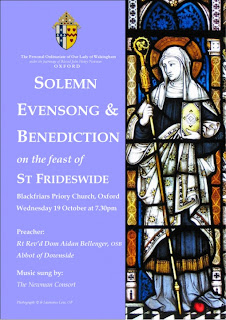A daytrip to Geneva today. From here in Paris, where I work, the capital city of the Eldest Daughter of the Church, to the home of Calvinism. Readers will be glad to know that I managed to return without having had a change of heart on having joined the Catholic Church. One can imagine that for a certain kind of Anglican visiting the Eternal City of Rome at the moment, such a trip might be rather tougher on the convictions, but as it is, I remain steadfast in the Faith.
However, Geneva is a wonderful place, and the weather today certainly beats the grim drizzle that greeted me on my return to Paris a little earlier on. The first picture was taken just after lunch in the Place du Molard, the second on Lake Geneva, and the third in the sunshine of Paris.
Today is the Feast of St Luke, author of the Gospel of Luke and of the Acts of the Apostles. These texts are of course full of very widely known passages, but perhaps in the context of a blog related to the Ordinariate, it makes sense to refer to the Magnificat. The Magnificat is the Canticle of Mary, one of the most ancient hymns of the Church, and certainly one of the most ancient Marian texts.
There is a link there of course to Our Lady of Walsingham, but in any discussion of Anglican Patrimony, the topic of Solemn Evensong and Benediction comes up, and there one can find a veritable wealth of Anglican music that can be used in a Catholic setting. The Oxford Ordinariate group has done some pioneering work in this regard, already having held a service of Solemn Evensong and Benediction, and planning to hold another one tomorrow night (19 October at 19h30) for the Feast of the Patron Saint of Oxford, St Frideswide. Here is the Magnificat as sung at their June Solemn Evensong and Benediction.
The poster for their event tomorrow night is shown below.
It is hoped that we may eventually be able to co-ordinate something similar to occur at St James's, Spanish Place, but this is yet in the planning and subject to the agreement and consent of many parties. It could be a great opportunity to gather together, from all across London and the South East, a decent number of Ordinariate members, non-Ordinariate Catholics who like the tradition of Solemn Evensong and Benediction, and Anglican friends of the Ordinariate eager to see an example of Anglican Patrimony in use.
The big question now is which Stanford Magnificat to include as the closing piece of music in this blogpost. Stanford is perhaps the classic composer of Anglican settings of the Magnificat for Evensong. His best known setting is arguably the one in B flat, a staple of parish church choirs and public school chapels up and down the land, but that is perhaps not the finest. For me, it is a tie between Stanford in G (with the image, created by the "spinning" of the quaver accompaniment to the treble solo, of the maiden at her wheel) and the majesty and delicacy of Stanford in G. In for a penny, in for a pound - let's have both.
Our Lady, pray for us.
St Luke, pray for us.




No comments:
Post a Comment